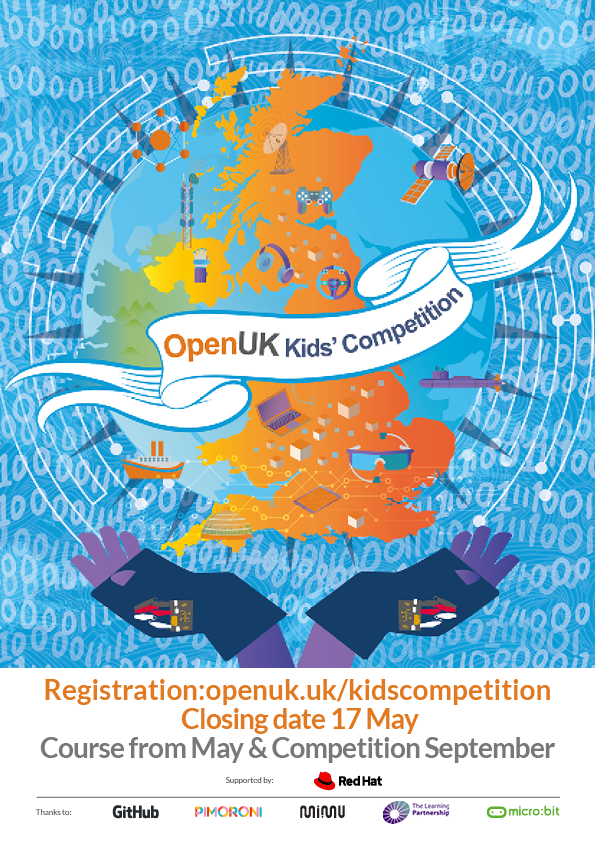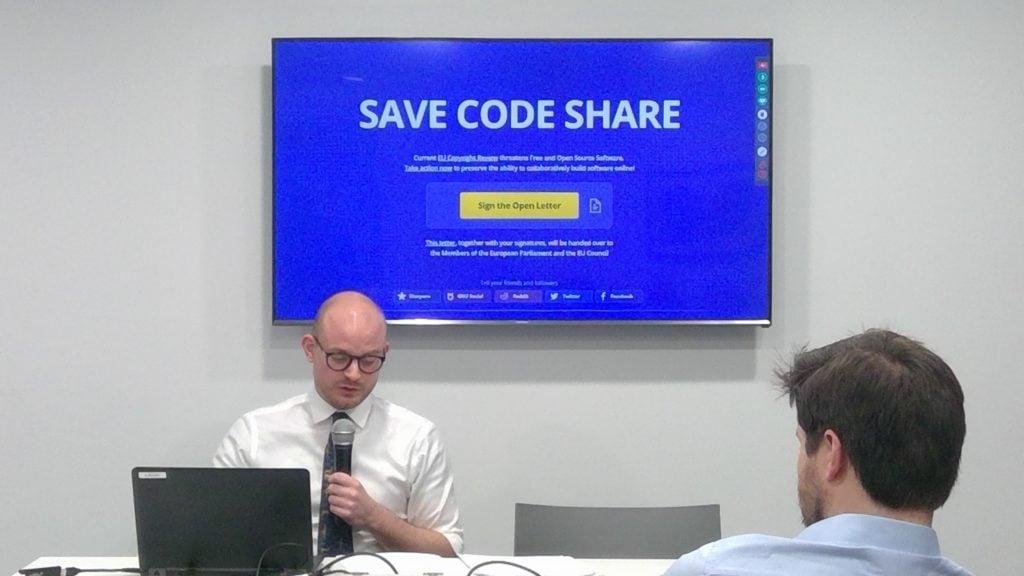OpenUK Review of the Year
Our sibling organization, OpenUK, represents the interests of the UK open source industry. As 2020 draws to a close we invited its CEO, Amanda Brock, to reflect and celebrate its work, developing UK leadership in Open Technology, during her first full year at the helm.
What a year OpenUK has had. The second half of the year has been a busy 6 months with the Awards, our Kids Competition, a number of Legal and Policy activities and the launch of our Supporter model.
The First Edition of the OpenUK Awards sponsored by the law firm Bristows, was celebrated on 20 October, with almost 150 attendees, receiving a Good box. Described as the best event of 2020 by many of the attendees and with a ‘Wow…just wow” from keynote, Jono Baon, its interactive and hybrid format, is something OpenUK will be doing more of.
Guests were able to table hop and rub shoulders with old friends as they celebrated our winners:
- Open Source Software – Hospital Run
- Open Hardware – LowRisc Foundaton
- Open Data – National Library of Wales
- Finance and Fintech sponsored by FINOS – Parity.io
- Young Person – Josh Lowe
- Individual – Liz Rice
A heartfelt congratulations to all of our Awards winners who each received a trophy created by Garner Osborne.
We were also able to share their prizes with our Kids Competition sponsored by Red Hat. The winners were Altrincham Grammmar School for Girls, in the North of England, Durlston College in the South of England, Rathmore Grammar School in Northern Ireland and Scottish and National Winner Morrison’s Academy.
The Awards were co-hosted by Double Grammy Award winning singer Imogen Heap who added a touch of glamour to the evening as she recognised the contribution of the open source communities to her MiMU glove project and spent some time with the kids from each of the winning schools.
This hasn’t just been a time for OpenUK to give out Awards, but also to receive one, as the OpenUK Kids Competition and Digital Kids Camp is a Phase two winner of the GNOME Community Challenge. An incredible achievement to be one of the final 5 participants in this global challenge, from an initial pool of 149 entries. Not only have we received this accolade, but Red Hat have committed sponsorship for year two of both the Competition and Kids Course and we will share more information on these in January.
The Awards were also a great opportunity to launch our Supporter Model, allowing individuals to support funding OpenUK and to benefit from a number of opportunities including Supporter events and discounts, but most importantly the ability to stand for and vote in the OpenUK Board elections. The first election will take place in Autumn 2021. Half the Board seats will be available for election and anyone who has been a Supporter, paying their monthly subscription for 6 months will be able to vote. More information at our website.
We are waiting for the Supreme Court of the US Decision in Google v Oracle, where OpenUK joined with the Python Foundation, Tidelift and others in an amicus brief explaining the risk of copyright in API’s to open source and have only just completed a response to the National Data Strategy Consultation in the UK. As our final Brexit looms fast, these and other global activities are of great significance to the UK’s Open Technology Communities and CEO, Amanda Brock has given a number of keynotes and written extensively on this and GaiaX. In joining Gaia X as a Day One Member, OpenUK was described as the UK’s lifeline and will be leading the way for UK corporate and public sector involvement. You can read a couple of different views on this in this article and this article in Computer Weekly
And listen to Amanda discussing Brexit, Global Shift and open technologies in a number of places including: YouTube.
A busy year, but even more to come in 2021. If you are interested in any of our activities or in getting more involved, please contact hello@openuk.uk, follow us on twitter @openuk_uk or LinkedIn
We wish you all an enjoyable festive break and health, wealth and happiness in 2021

